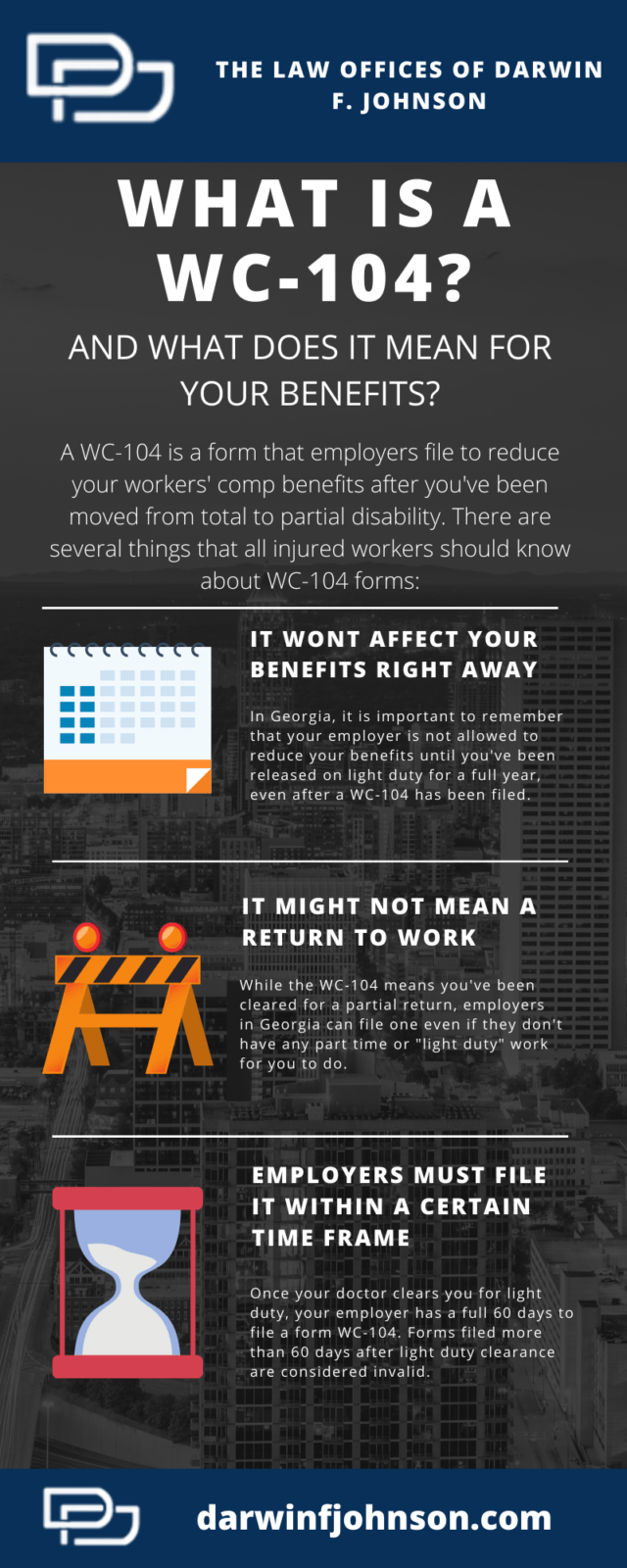By Darwin F. Johnson on June 10th, 2020 in Savannah Worker's Comp, Workers Compensation
If you were injured on the job and awarded workers’ compensation, the benefits you receive are designed to supplement your lost income and keep your bills and essentials paid for while you’re out of work. Of course, your individual injury and timeline for recovery are extremely important in determining the total amount of compensation that you receive.
Unless you experienced a catastrophic work injury and will be out of work forever, your benefits are likely planned out to last as long as it takes you to recover from your injury. If you’re temporarily out of work and plan on coming back when you’ve recovered, your employer and their insurance company are likely paying close attention to your doctors visit and tracking your recovery so that they can stop paying your benefits as soon as you’re able to work again.
For many people who’ve been injured on the job in Atlanta, the transition from rehabilitation to full-time work is a gradual one. Once you’ve recovered to a certain extent, your doctor may advise that a partial return to work is possible and release you on “light duty restrictions” meaning that you can’t perform all of your old duties, but are able to work again at partial capacity. Once you’ve been released on light duty, your employer in Georgia will very likely file a form WC-104. If you’ve been released on light duty in Georgia and your employer has filed a WC-104, there are some things you should know about this form and what it means for your benefits:

It Won’t Affect Your Benefits Right Away
Many people think of the WC-104 as the harbinger of the end for their workers’ comp benefits, and this partly true, but the filing of this form is only the first stage of the transition off of workers’ comp. In Georgia, the workers’ compensation carrier that’s paying your benefits is not allowed to reduce your weekly compensation until one full year after you’ve been released on light duty. Once the one year period has expired, you may have your benefits shifted from temporary total disability (TTD) to temporary partial disability (TPD).
It Doesn’t Necessarily Mean You’ll be Back to Work
Many people understandably think that the filing of a WC-104 by their employers means that they will soon be back at work part-time or with reduced responsibilities, but depending on your employer, it may or may not be the case. In Georgia, a WC-104 can be filed regardless of whether the employer has any light duty work for the claimant to do.
Your Employer has a Limited Window to File it
Once you receive a WC-104 from your employer, the first thing you should do is compare the date on the form and it’s envelope with the date on the physician’s release that cleared you for light duty work. According to Georgia law, your employer must file the form WC-104 within 60 days of when you were cleared for light duty. If you receive a WC-104 more than 60 days after being cleared, it is likely invalid and you should contact your Atlanta workers’ comp attorney immediately and report it.
Please contact The Law Offices of Darwin F. Johnson today if you are interested in learning more about workers’ compensation law and disability benefits in Atlanta.
